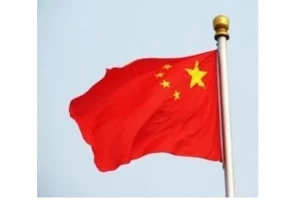In the wake of massive military drills by China in the area surrounding Taiwan, a visiting delegation of US lawmakers has expressed support for Taiwan, Focus Taiwan reported.
Michael McCaul, chair of the US House Foreign Affairs Committee who is leading the bipartisan congressional delegation in a meeting with Taiwan’s new president Lai Ching-te, said that China’s “intimidating military exercises” demonstrated that the mainland is “not interested in taking Taiwan by peaceful means.”
Addressing a news conference in Taipei, US Representative Michael McCaul called the drills an “intimidation tactic to punish democracy” and vowed to bolster Taiwan’s defense by speeding up the delivery of defensive weapons from the US, CNN reported.
He further reiterated Washington’s long-term support for Taiwan, stressing that the US will continue to be Taiwan’s “reliable partner.”
The Republican legislator stressed that following the newly-sworn Taiwan President’s inauguration last Monday, China held a round of military exercises in response.
“The forces of China conducted intimidating military exercises, sending 110 aircraft and 46 warships, demonstrating they are not interested in taking Taiwan by peaceful means,” he said.
He called on all democracies to “stand together against aggression and tyranny,” whether the tyranny is Russian President Vladimir Putin or Chinese President Xi Jinping, Focus Taiwan reported.
McCaul underscored the Taiwan Relations Act (TRA), which has served as a cornerstone guiding unofficial US-Taiwan relations since ending diplomatic relations in 1979, requires Washington to provide weapons systems of a defensive nature to help Taiwan’s self-defence.
“We must make sure that no one in their right mind will try to upset the peace in which you have thrived. America is and always will be your reliable partner and no amount of coercion or intimidation will slow down or stop the routine visits by the Congress to Taiwan,” he said.
Taiwan President Lai expressed gratitude to McCaul, his delegation, and the US Congress as a whole for their long-term support of the island nation.
The president emphasized that his new government will continue to deepen cooperation with the US and other like-minded countries to maintain regional peace, stability, and prosperous development together.
“Moving forward, my administration will continue to enhance national defense, showing the world the determination of Taiwan’s people to defend their home,” he added.
Highlighting the current backlog of weapons orders, McCaul said the roughly USD 20 billion in delayed Taiwan arms orders from the US is mostly due to defense industrial base-related issues, Focus Taiwan reported.
The just-concluded Chinese drills encircling Taiwan following Lai’s May 20 inauguration again reminded the world of the “very dangerous situation” across the Taiwan Strait, he noted.
“And that’s why deterrence is so important. I know every member (congresspersons) here will take that message (of speeding up their country’s delivery of military weapons to Taiwan] back,” he said.
However, before the backlog issue, McCaul noted that US President Joe Biden had signed grant and Foreign Military Financing loans to Taiwan worth USD 4 billion as a sign of support over the past months, reported Focus Taiwan.
Emphasizing on the kind of weapons Taiwan needs most from the US to boost its defense, McCaul said maritime assets are more important than land-based ones to prevent People’s Liberation Army (PLA) troops from landing in Taiwan.
The US delegation arrived in Taipei late Sunday, including McCaul, Republicans Young Kim, Joe Wilson, and Andy Barr, and Democrats Jimmy Panetta and Chrissy Houlahan.
Additionally, McCaul is also expected to meet Taiwan Vice President Hsiao Bi-khim and other members of Lai’s new foreign affairs and national security team to exchange views on issues of mutual concern, regional security, and Taiwan-US relations, according to the Ministry of Foreign Affairs.




















